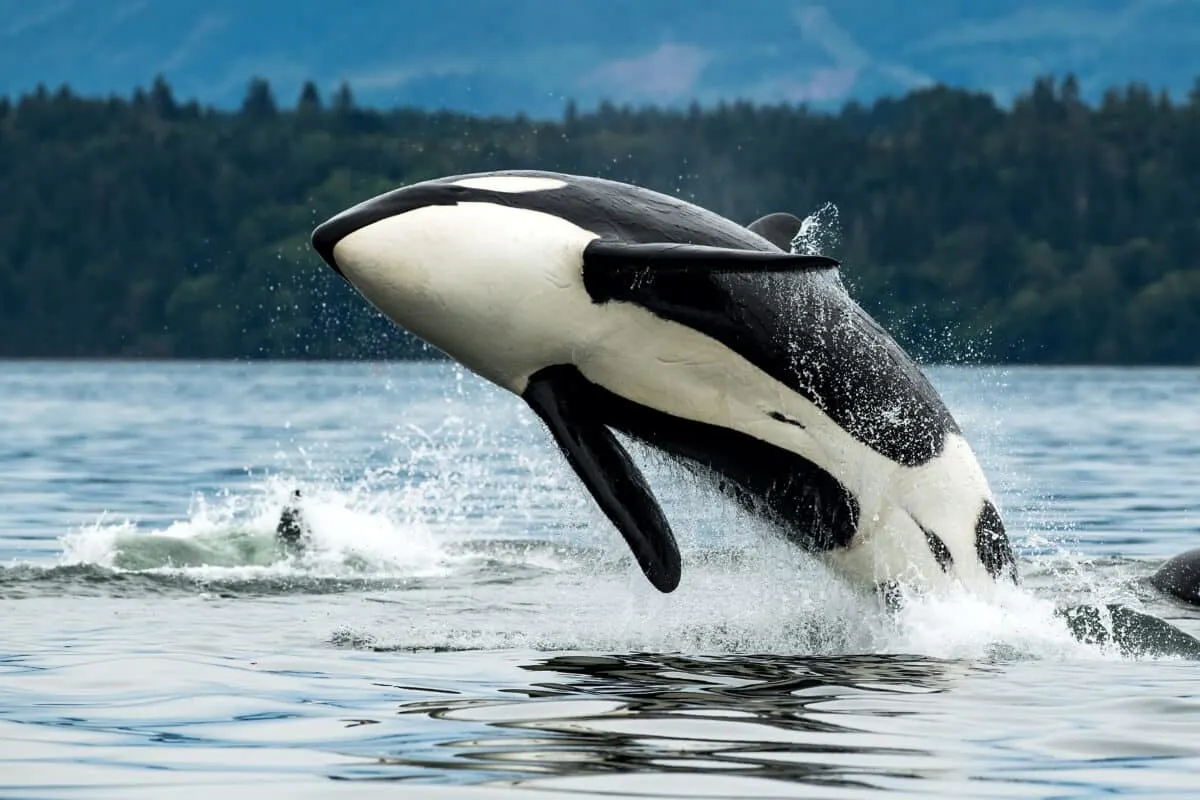Discover how the Orca Behaviour Shows Grandma Knows Best. Learn more about this matrilineal society and how they pass on knowledge.
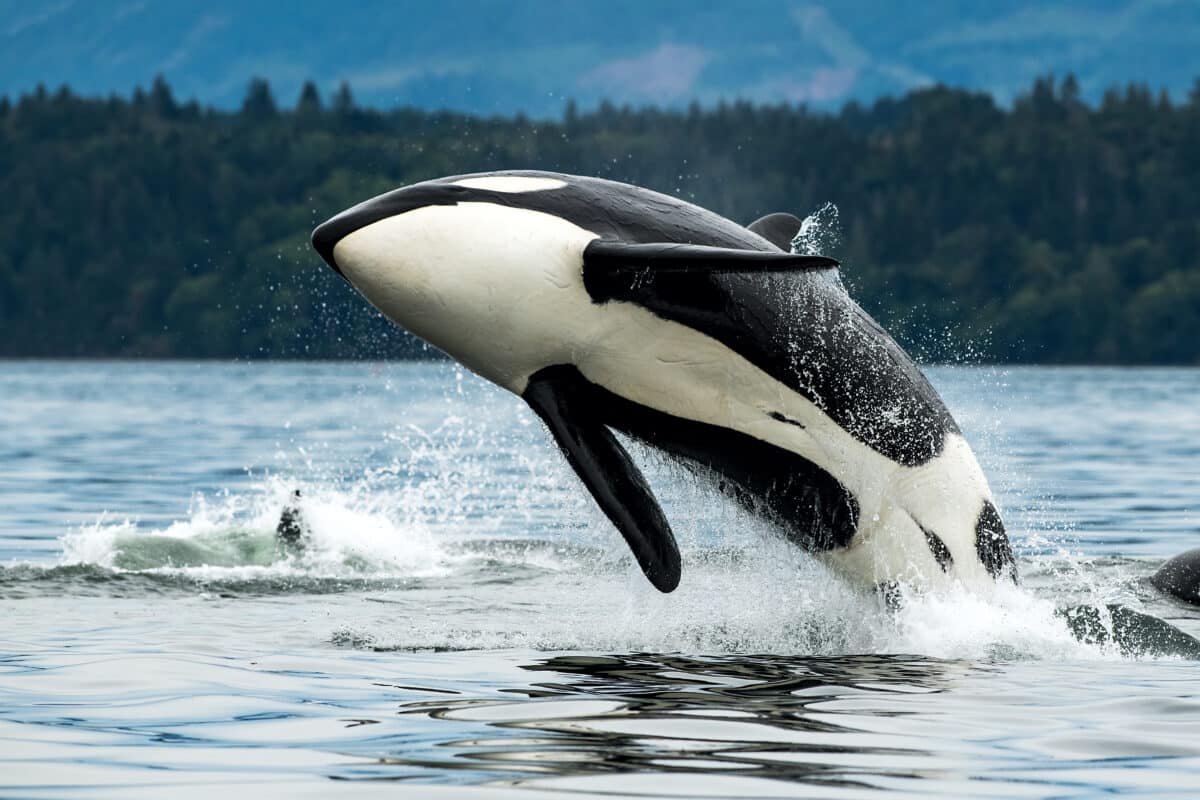
Want to jump ahead? Click below
Introduction: Longevity and Leadership in the Ocean Realm
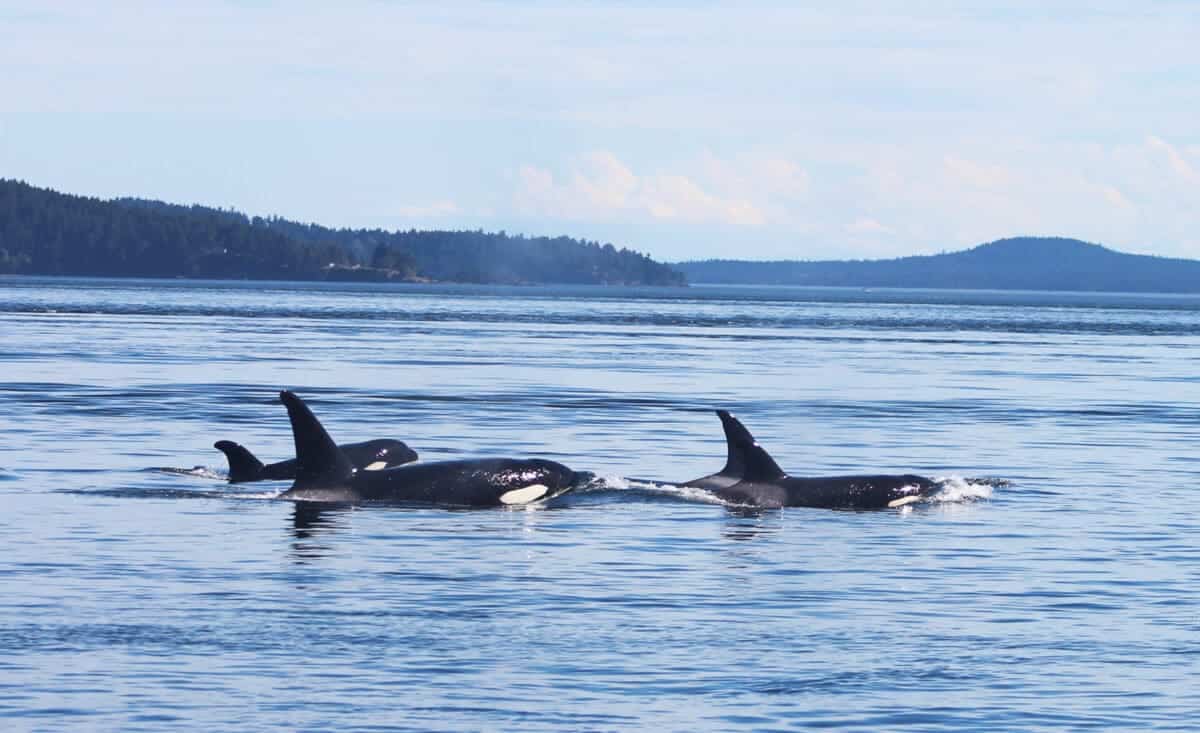
Beneath the glistening waves of our oceans, a fascinating story unfolds – one that revolves around the extraordinary lives of killer whales or orcas. Among these majestic marine beings, a remarkable trend emerges: female orcas live significantly longer than their male counterparts, with some females reaching the impressive age of 90. This captivating phenomenon, known as the “granny effect,” reveals the crucial role of grandmothers in guiding and nurturing younger members of their pod.
The Age Disparity: Females vs. Males
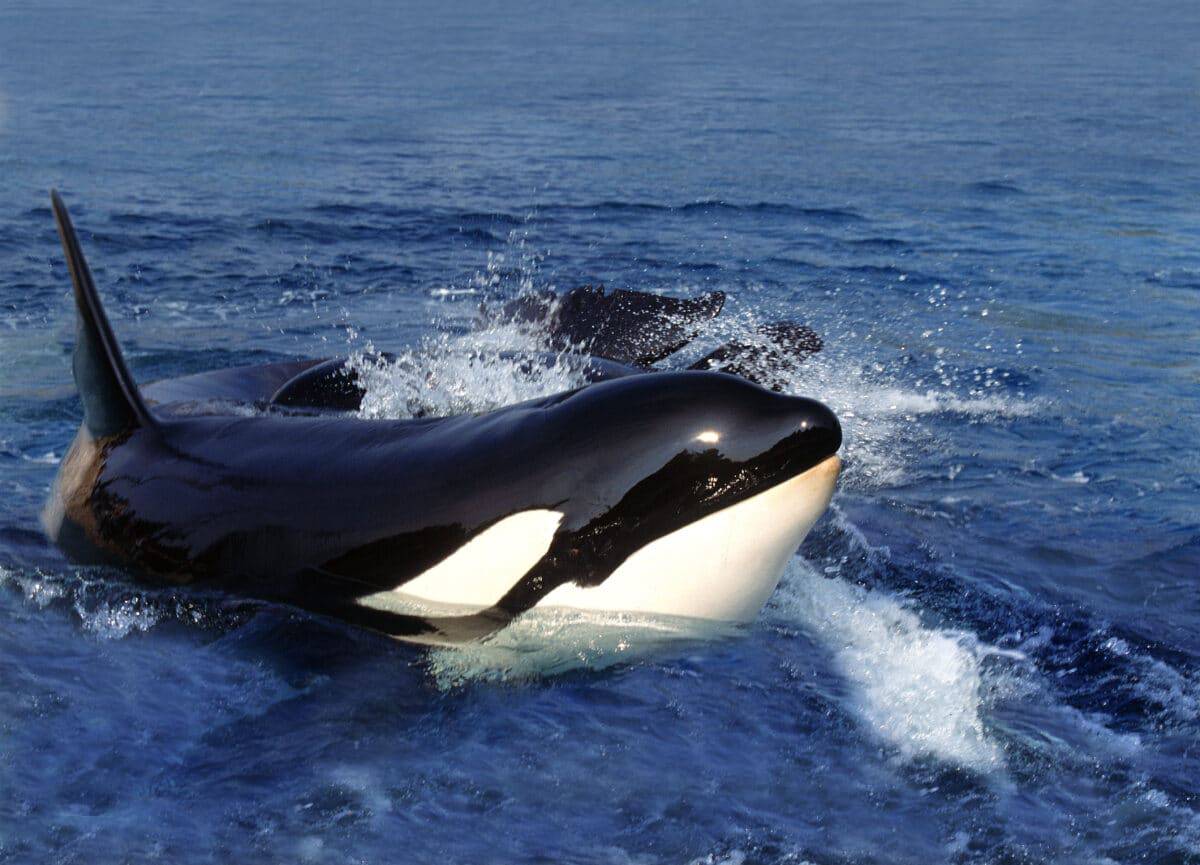
In killer whales, the contrast in lifespans between females and males is striking. While male orcas rarely live beyond 40 years, their female counterparts thrive well into their 60s, and in exceptional cases, even beyond 90 years old. This longevity discrepancy sparks curiosity and questions the underlying factors influencing their survival rates.
Interesting Fact: Orcas, the largest members of the dolphin family, are known for their intelligence and complex social structures, making them a subject of fascination for scientists and wildlife enthusiasts.
Grandmothers’ Influence on Young Males
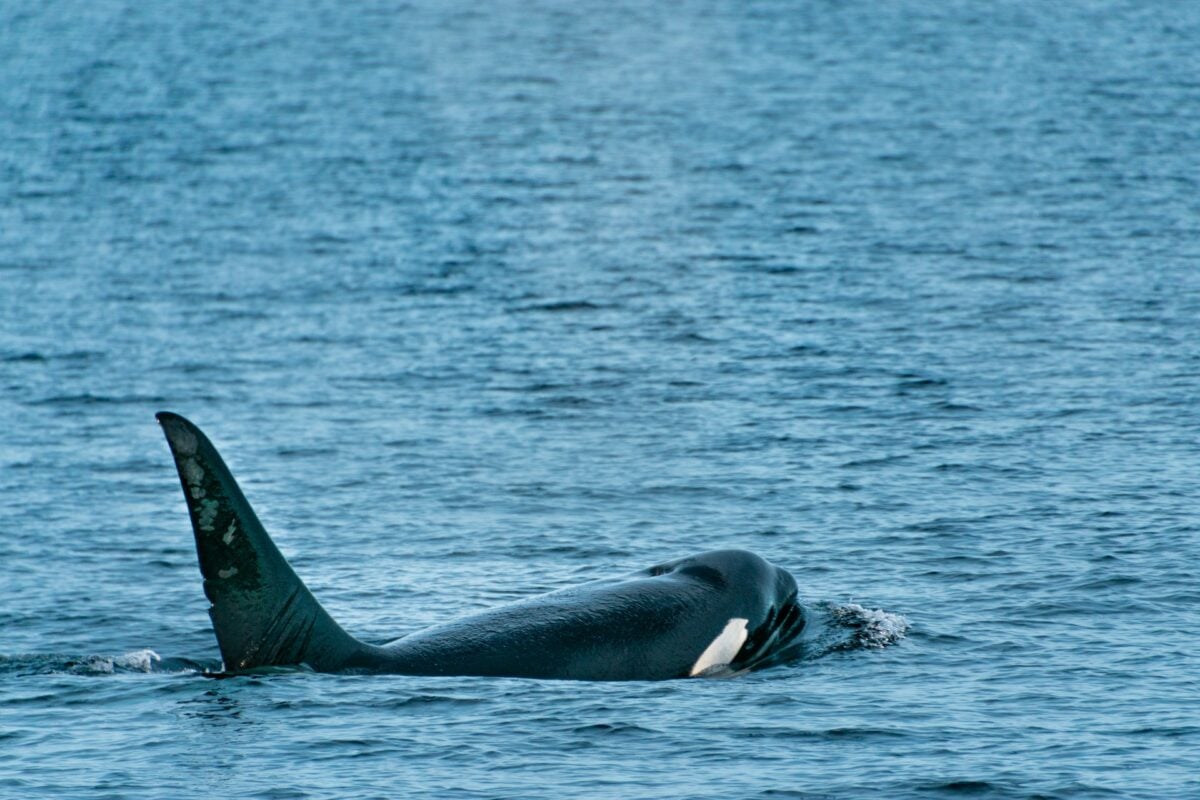
Research on killer whale populations has unveiled a remarkable finding – grandmothers’ presence significantly impacts young male orcas’ survival. When an adult male loses his mother, the likelihood of his death within the next couple of years increases dramatically. This is because male orcas heavily rely on their mothers to teach them essential survival skills, particularly in locating food.
The Matrilineal Structure: Leadership Amidst Scarcity
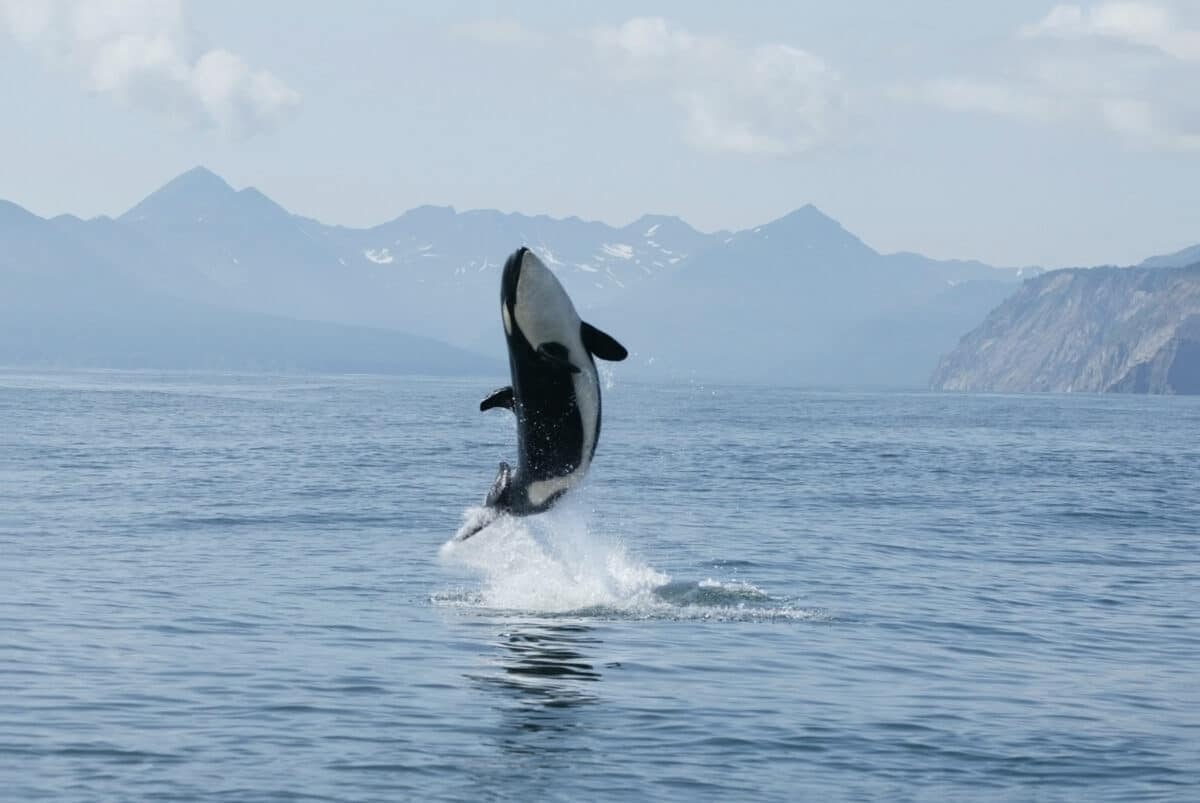
Amid times of abundance, killer whale societies demonstrate fluid hierarchies with regular leadership exchanges. However, when resources become scarce and salmon is in short supply, the pod turns to the oldest female for guidance and leadership.
Interesting Fact: Killer whales possess a fission-fusion society with ever-changing group sizes and compositions. Within this dynamic structure, stable subgroups are formed by families.
A Unique Perspective: Matrilineal, Not Matriarchal
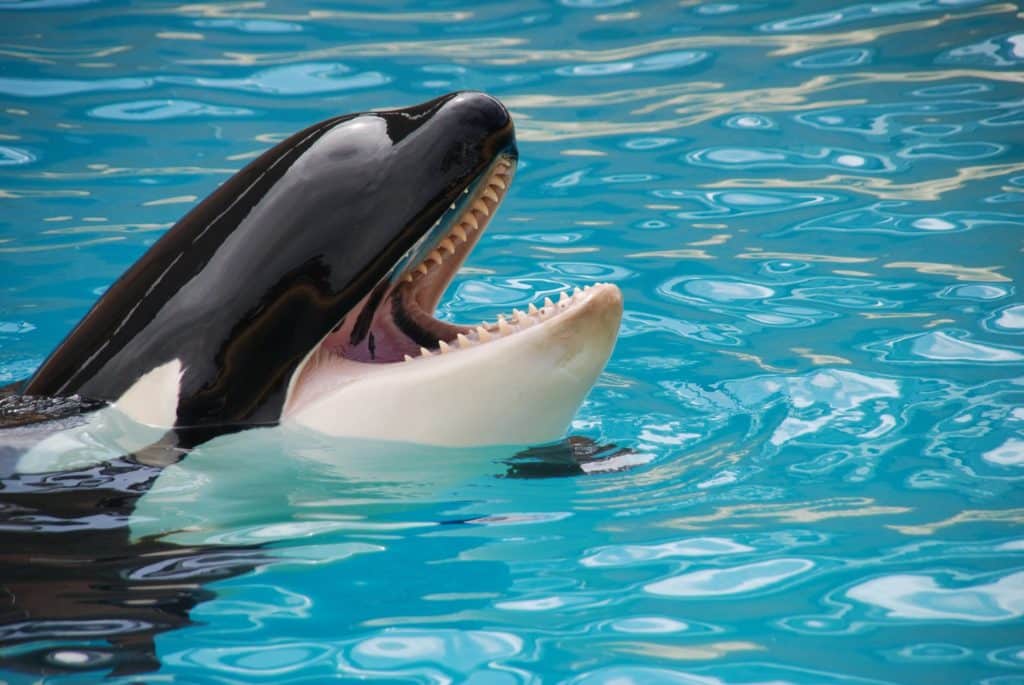
While the killer whale’s social dynamics may resemble a matriarchy initially, experts describe their relationships as matrilineal. The oldest female often leads the pod during challenging times, leveraging her experience as a hunter and survivor of lean years.
Family Bonds and Whales’ Social Complexity

Within the fission-fusion society, killer whales form small family groups for most of their time. Occasionally, they interact with other family groups or join the entire population, creating a hierarchical system. Interestingly, a male may breed with a female from another family group but eventually returns to his mother.
The Enigma of Menopause in Whales
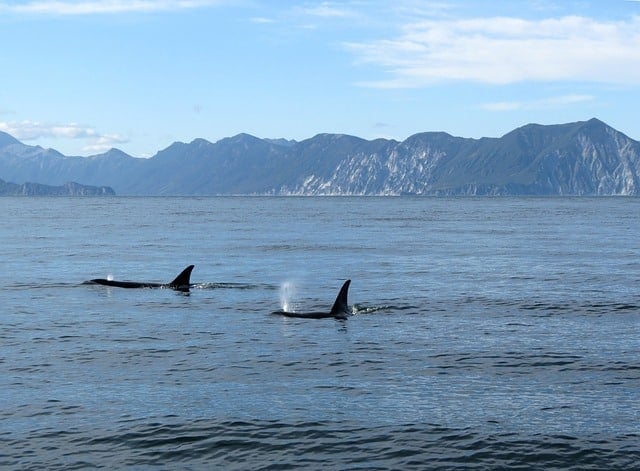
Although whales do not experience menopause like humans, researchers continue to explore this fascinating aspect of their lives. By studying the intricate social worlds of killer whales, scientists hope to gain insights into the natural world and our own human societies.
FAQs on Orca Behaviour Shows Grandma Knows Best
Yes, orcas have a matriarchal society, where the oldest and most experienced female, known as the matriarch, plays a central role in guiding and leading the pod.
The matriarch in a pod of orcas is the oldest and most dominant female, often making critical decisions for the group, especially during times of scarcity.
Female orcas tend to stay with their mothers and maintain strong family bonds, forming stable subgroups within the larger pod.
Orcas do have a social hierarchy within their pod, which is fluid and can see regular leadership exchanges, but during challenging times, the oldest female typically takes the lead due to her experience and survival skills.
Wrapping Up with Orca Behaviour Shows Grandma Knows Best
The granny effect in killer whales offers a captivating glimpse into the intricacies of their social lives. Furthermore, the influence of experienced females on their pod’s survival. These incredible marine beings continue to inspire awe and wonder, teaching us valuable lessons about the delicate balance of nature and the importance of strong family bonds. As we dive deeper into the mysterious underwater world, our understanding of these magnificent creatures and our connection to the natural world grows ever stronger.
Next up:
- Bald Eagle Family Expand Their Nest In California - April 24, 2024
- Firefighter Saves Abandoned Kittens Found Cuddling In Hoses - April 24, 2024
- Dolphins Get High Playing Catch With A Pufferfish - April 24, 2024

